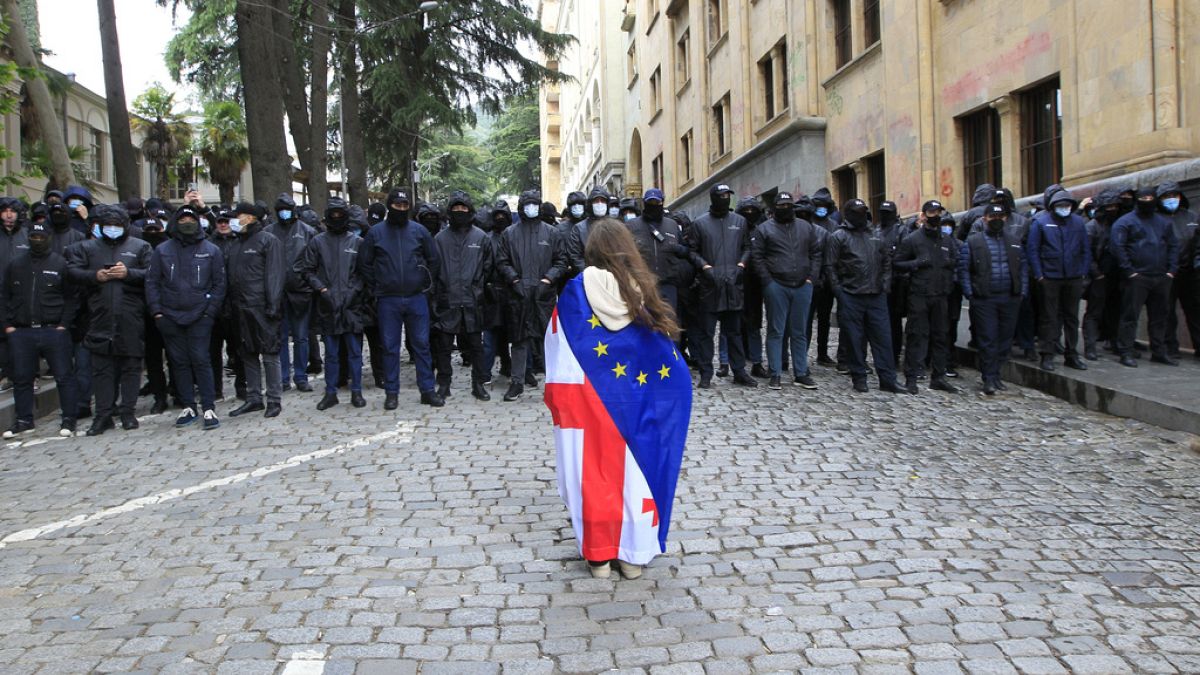Georgia has recently approved a controversial “foreign influence” law that requires media and NGOs to register as “foreign agents” if they receive more than 20% of their funding from abroad. The Council of Europe’s Venice Commission has urged Georgia to repeal this law, citing concerns about its potential to curb press freedom and stifle opposition voices. The law has sparked mass protests in the country, with critics comparing it to similar legislation used by the Kremlin in Russia. The Venice Commission criticized the Georgian government for adopting the law without engaging in genuine discussion and consultation with the public.
The Georgian government argues that the law is necessary to prevent harmful foreign influence over the country’s politics and to safeguard against destabilization by unspecified foreign actors. However, protesters in the capital city of Tbilisi have faced heavy violence from police. Despite the government’s justification, the European Union has condemned the law, warning that it could jeopardize Georgia’s aspirations to join the bloc. Georgia was named an EU candidate in December, but the EU has not specified any repercussions for the accession process due to the new law.
A survey conducted last year revealed that a majority of the Georgian population, 89%, support EU membership and 80% support NATO membership. However, the same survey showed that 87% of respondents view Russia as the greatest political and economic threat. This highlights the complex geopolitical dynamics at play in the region, with Georgia balancing its pro-western aspirations with concerns about Russian influence. The ongoing protests and international condemnation of the “foreign influence” law underscore the challenges facing Georgia as it navigates its future path.
The Venice Commission’s call for Georgia to repeal the contentious law reflects growing international scrutiny of the country’s commitment to democratic principles and human rights. The heavy-handed response to protesters by the Georgian government has raised concerns about the erosion of civil liberties and freedom of speech in the country. The EU’s denouncement of the law signals its commitment to upholding democratic values and human rights among its potential member states.
Despite the government’s efforts to defend the law as necessary for national security, the widespread opposition to it within Georgia and abroad indicates the need for a more inclusive and transparent decision-making process. The lack of meaningful consultation with the public and civil society groups has fueled skepticism about the government’s motives behind the law. The protests in Tbilisi and the ongoing criticism from the EU and other international bodies highlight the importance of respecting democratic norms and freedoms in Georgia’s path towards European integration.
Georgia’s strategic location at the crossroads of Europe and Asia makes it a key player in regional geopolitics, with competing interests vying for influence in the country. The tensions surrounding the “foreign influence” law reflect broader power struggles in the region, with Georgia caught between its pro-western aspirations and the realities of its complex relationship with Russia. The protests and international pressure on Georgia to repeal the law serve as a reminder of the importance of upholding democratic values and human rights in a rapidly changing global landscape.
In conclusion, the controversy surrounding Georgia’s “foreign influence” law highlights the delicate balance the country must strike between national security concerns and democratic principles. The Venice Commission’s recommendation to repeal the law underscores the need for Georgia to engage in genuine dialogue with its citizens and civil society to uphold the rule of law and respect fundamental freedoms. As Georgia continues its path towards European integration, it must navigate the geopolitical complexities of the region while safeguarding its commitment to democracy and human rights.







